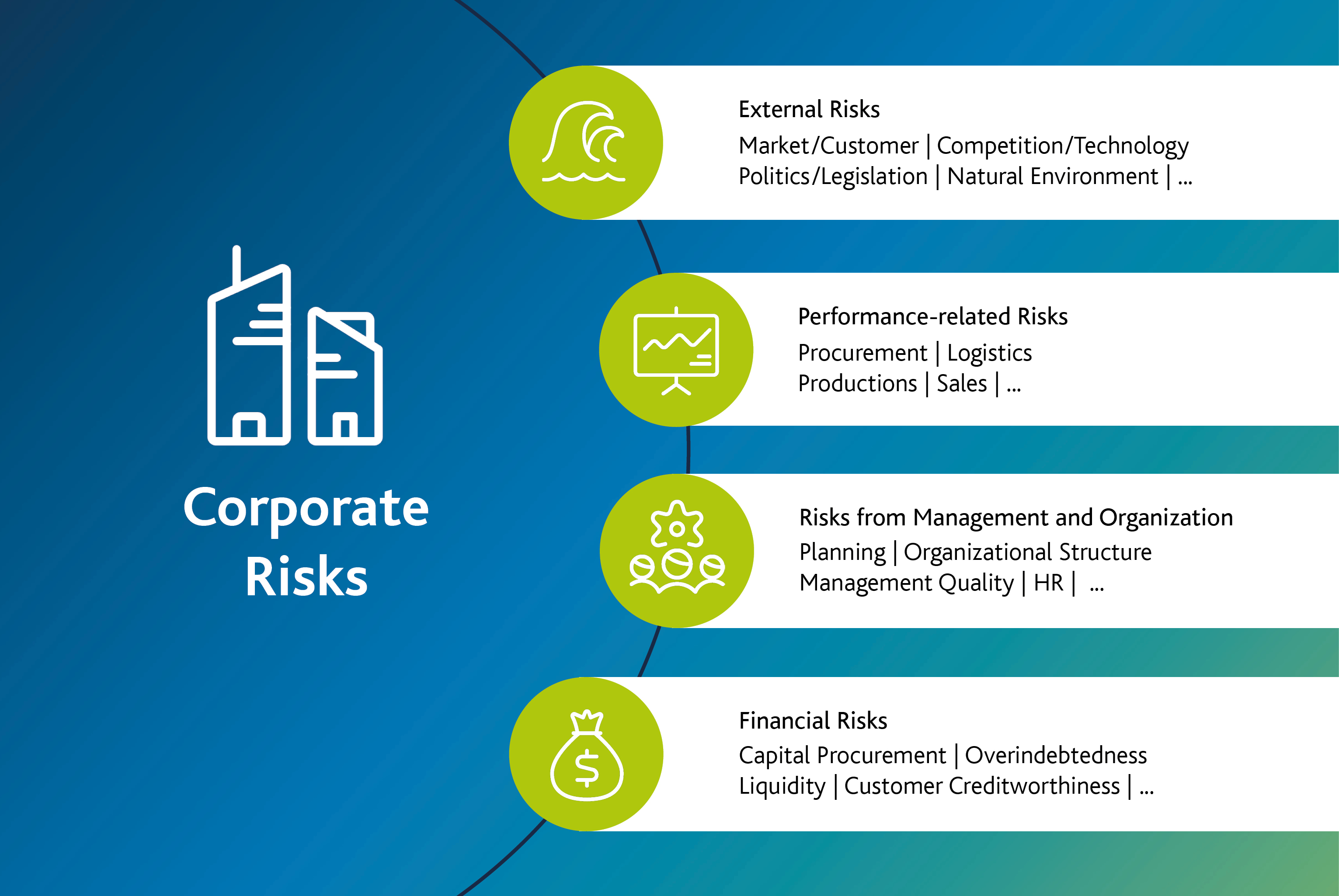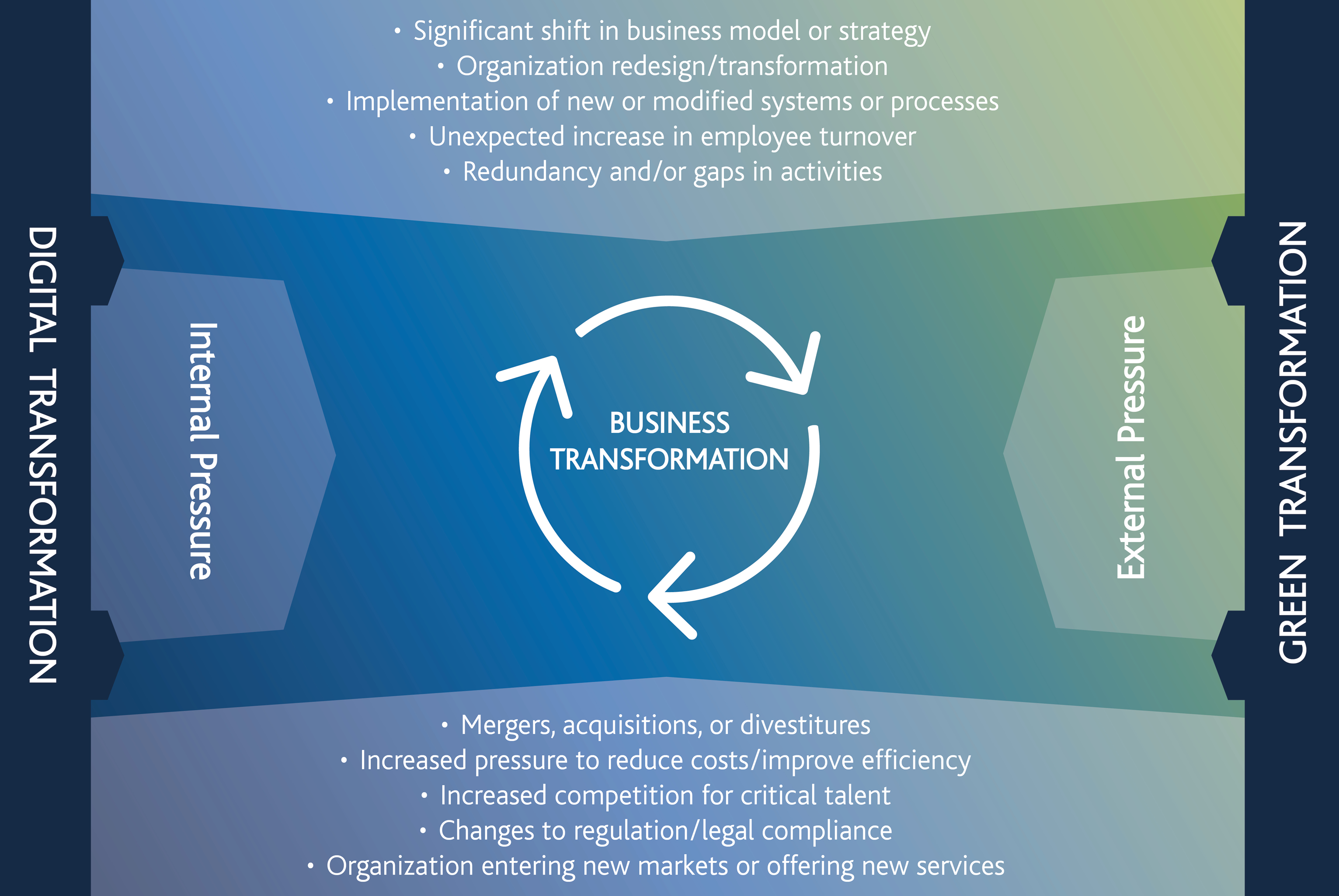
Crisis Management: Focus On Investments & Liquidity
Developing Business Models Sustainably
While growth strategies, the digitization of business processes, and the shortage of skilled workers have been the focus of entrepreneurial action in the past, managing multiple crises will increasingly become one of the top priorities of the Executive Board from mid-2022. Crisis management requires quickly available and suitably dimensioned financial information for the management perspective.
Risks Must Be Made Visible
In 2023, the risk maps of the risk-controlling departments of global players are full of bursting with potential risks, the occurrence of which could cause significant financial damage. Among the more universal risks that can render the initial assumptions from the business plan of many corporate groups absurd are, for example:
Consumer reticence due to high inflation
Increased energy costs or raw material prices
Rising refinancing costs due to the turnaround in interest rates
Payment defaults by customers at risk of insolvency
Globally active groups of companies with generally digitized business processes are often confronted with undesirable developments or threats of cross-border proportions, e.g.:
Supply chain disruptions
Geopolitical uncertainties,
IT risks / cybersecurity attacks
Regulatory requirements / international trade restrictions
Recent studies by staffing firms show that corporate executives are currently particularly challenged and, on average, must simultaneously manage at least three of the crisis-related developments listed above.

Crisis-Resistant Business: Investments in Sustainability and Digitization Remain Indispensable
The personal resilience of the people involved and the sustainable robustness of the corporate business models are currently in demand. At the same time, there seems to be a consensus in the executive suites of larger corporate groups that sensible investments in sustainable structures and digital processes must continue to be made in the current crisis situation. Crisis-proof organizational forms - for entire business units and staff departments - must be flexible, follow easily understandable action patterns, and avoid duplication of work in the "new normal. In addition, management must set targeted innovation impulses and enable the organization to monetize these impulses by providing adequate resources, motivating working time models, and sufficient budgets. The role of the "transformation agent" for finance executives becomes much more important during a crisis.
The CFO Organization Must Strengthen Investment Controlling, Liquidity Planning and Communications
In order to strengthen the resilience of one's corporate home base while safeguarding the future of the same, transparent tracking of the impact of management decisions is moving more clearly into the focus of the CFO organization. High on the agenda of above-average finance organizations, therefore, are:
- Flexible tools that allow agile simulations and scenario-based forecasting,
- Practical approaches for controlling fragile supply chains
- A treasury closely linked to the financial systems, which monitors liquidity and can plan cash flows in the short term
- Integrated possibilities to track the return on investments from within the ERP systems
- A clear view of potential impairment risks of long-term tangible and intangible assets in capital employed
- Real-time insight into all stages of the cash conversion cycle
- Clarify customer centricity in sales controlling
- KPIs for measuring the effectiveness of restructuring measures
On the manufacturer side - such as SAP in SAP S/4HANA ERP - end-to-end financial processes are already firmly anchored in the philosophy of modern financial platforms. If the master data for all types of CFO organizations (i.e., controlling, accounting, treasury, sustainability & tax) is harmonized, the appropriate data can be tapped directly from the ERP source in real-time and with all the required dimensional information and quickly processed further into consolidated actuals or forecasts. Within the finance organization, strategic controlling should see itself as a competence center for the (potentially possible) diversity of perspectives and clearly illustrate entrepreneurial actions and their impact on business models and the environment.
Sustainability Is Also an Issue in Times of Crisis
The basis for understanding cause-effect relationships in controlling is usually an appropriate reduction in the complexity of corporate reality. The "right" management decision can, therefore, only be developed on the basis of correct, quickly available information that can be used in multi-dimensional scenario models. It is becoming apparent that CFOs are not only meeting this challenge through digitization efforts and the implementation of integrated finance platforms, but are also increasingly being guided by sustainability aspects in their corporate transformation in a crisis context.

True Cost Accounting and Twin Transition
In the sense of a "double transformation," useful interdependencies (i.e., value-creating business drivers) from the two directions of action, "digitization" and "sustainability," can result in innovation impulses that, in turn, help to increase crisis resistance.
The currently discussed approaches of "true cost accounting" and the measurement of the value contribution of competition-differentiating intangible assets will certainly be able to establish themselves firmly in the reporting practice of many companies in the future - and make a decisive contribution to the robustness of their own business model when overcoming the "next" multiple crisis situation.
Written by

Prof. Dr. Martin Wünsch is an expert in financial reporting and SAP S/4Hana Finance Consulting. He is familiar with this field from various perspectives, e.g., Big4-Audit, Corporate Functions, or Management Consulting. He holds a chair in Business Administration, in particular in Int, Accounting & Controlling, at the FOM University of Applied Sciences Düsseldorf and regularly publishes on current topics in financial reporting.


